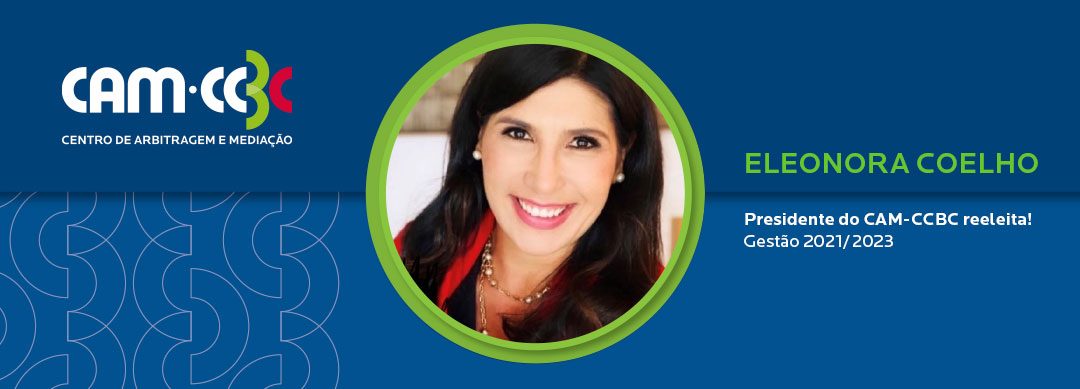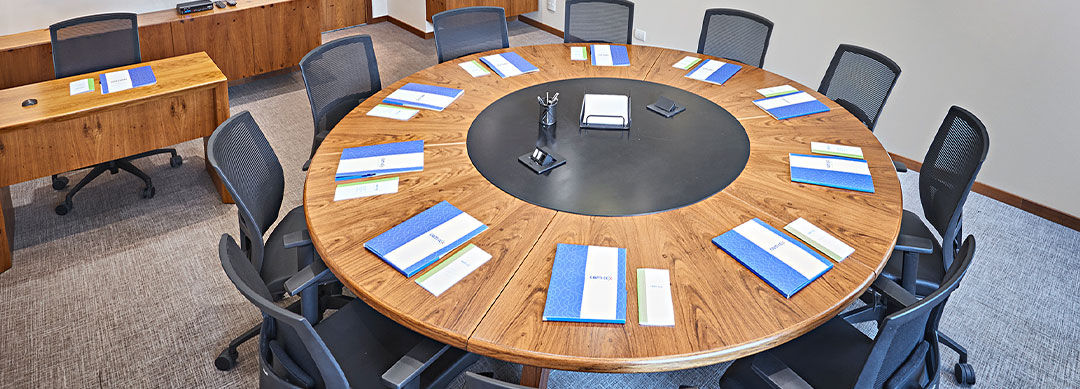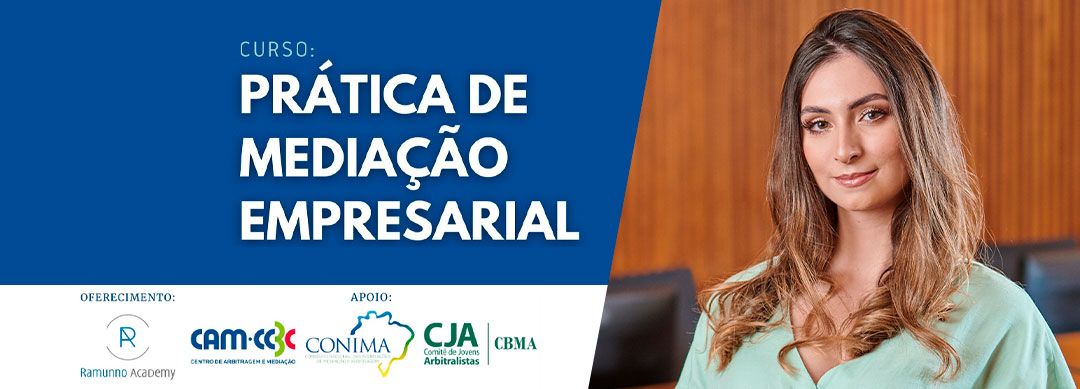Lawyer and arbitrator will remain in charge of the Center for two more years, maintaining the innovations and improvement of the activities
By Sérgio Siscaro
Responsible for a series of innovations that made CAM-CCBC more dynamic and inclusive, in the last two years, the lawyer and current president of the Center, Eleonora Coelho, was re-elected in April to hold the position for the biennium 2021 to 2023. Thus, she can proceed with the work adopted between 2019 and 2021, which made the institution increasingly diverse and sustainable, intensified its presence in national and international events and initiatives, and successfully addressed the challenge presented by the Covid-19 pandemic.
As a lawyer by profession, Coelho was elected president for the first time at the beginning of 2019. At that time, she already had considerable experience in the area of alternative dispute resolution (ADR): in 1998, just two years after Brazil enacted its Arbitration Law, she left for France, where she obtained a master’s degree in Litigation, Arbitration and ADR from the University of Paris-2 (Panthéon-Assas).
Back in Brazil, she served actively on Comitê Brasileiro de Arbitragem (Brazilian Arbitration Committee) (CBAr), of which she became vice-president between 2009 and 2013. When the Senate reformulated the Arbitration Law in 2015, Coelho was part of the jurist committee that advised parliamentarians on the subject. She then became General Secretary of CAM-CCBC for four years, until she was elected as the Center’s first female president, in its 40-year history.
In her first term, Coelho continued the promotion of the ADR culture in Brazil. Under her leadership, CAM-CCBC held and participated in several events and academic competitions, both at home and abroad, which contributed to strengthening partnership ties with other institutions involved in ADR, around the world.
Social Action
First woman to become President of CAM-CCBC, Eleonora Coelho developed a series of actions focused on the promotion of diversity, equity, and transparency. In her first mandate, her performance was strongly marked by transparency and social responsibility. An example of this was the donation of R$ 300 thousand to Hospital das Clínicas da Faculdade de Medicina da Universidade de São Paulo (USP) (Clinical Hospital of the Medical School of University of São Paulo), to support the institution’s actions in the fight against Covid-19. The resources were obtained by converting the funds that were originally intended for the Center’s usual sponsorship of the CBAr Congress.
Other social initiatives led by Coelho included collecting donations, in webinars promoted by CAM-CCBC, contributing to causes such as the Plano de Enfrentamento ao Novo Coronavírus do Serviço Franciscano de Solidariedade (Plan to Combat the New Coronavirus from Franciscan Solidarity Service) (Sefras), the work of the Pro-Saber Institute SP, and the UM Project.
More Diversity
Promoting diversity was also a major aspect of Coelho’s first term, as president of CAM-CCBC. Inclusion policies were adopted to increase the degree of diversity within the Center, be it of gender, race, or sexual orientation. In November 2020, when the Mês da Consciência Negra (Black Awareness Month) was celebrated, the Center distributed to its teams copies of the book Pequeno Manual Antirracista (Little Anti-racist Handbook), by philosopher and activist Djamila Ribeiro, with reflections on the subject.
The big challenge
The emergence and rapid spread of the new coronavirus has created a completely new situation. The impact of the pandemic completely changed the routine of governments, institutions, companies, and people, all over the planet. Given this scenario, CAM-CCBC’s reaction was immediate: as early as the beginning of March, the rules and digital communication tools that allowed the Center to maintain its operation during the pandemic were established.
In April, the president of CAM-CCBC issued Administrative Resolution 40/2020, which made the remote communication model mandatory. The electronic procedure became the rule, and the exchange of physical manifestations was no longer necessary. It was the way to maintain the operation of the Center, even with the restrictions brought by the protocols of social distancing, to avoid contamination with the new coronavirus.
Always attentive to changes in the pandemic situation, and to the recommendations of medical authorities, the Center’s management has adapted its procedures in accordance with the changing of the situation, a posture that it maintains until today, in view of the persistence of Covid-19 in the country. Nevertheless, based on its experience of one year of pandemic, CAM-CCBC has not only been able of maintaining its activities, but also of applying, in practice, models of remote procedures, which ensure safety, agility, and cost savings, for all parties involved.





